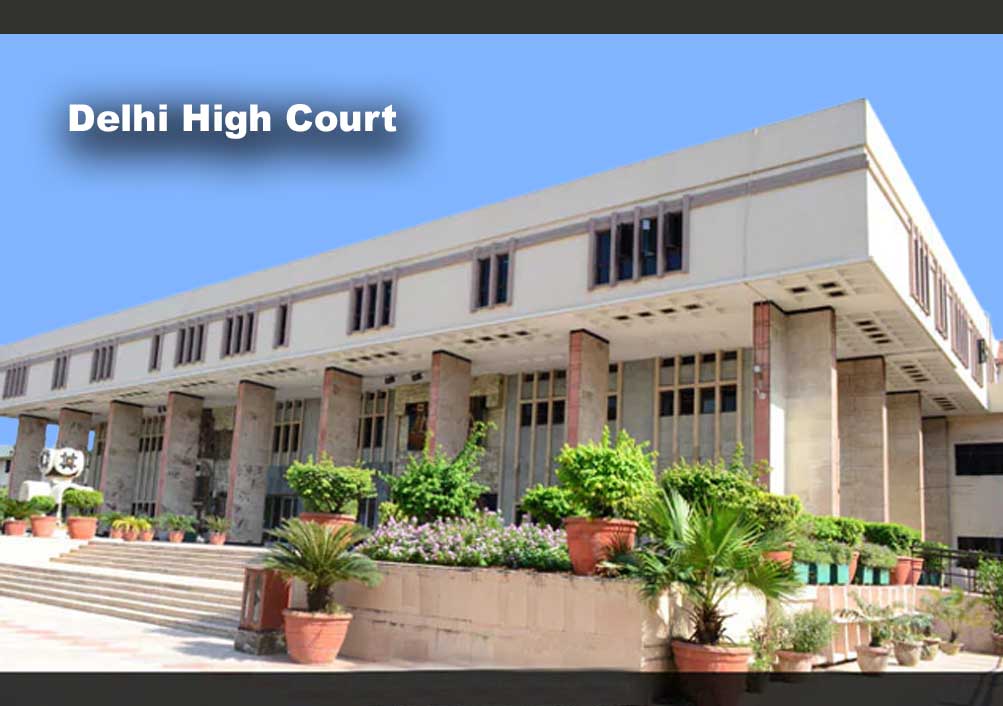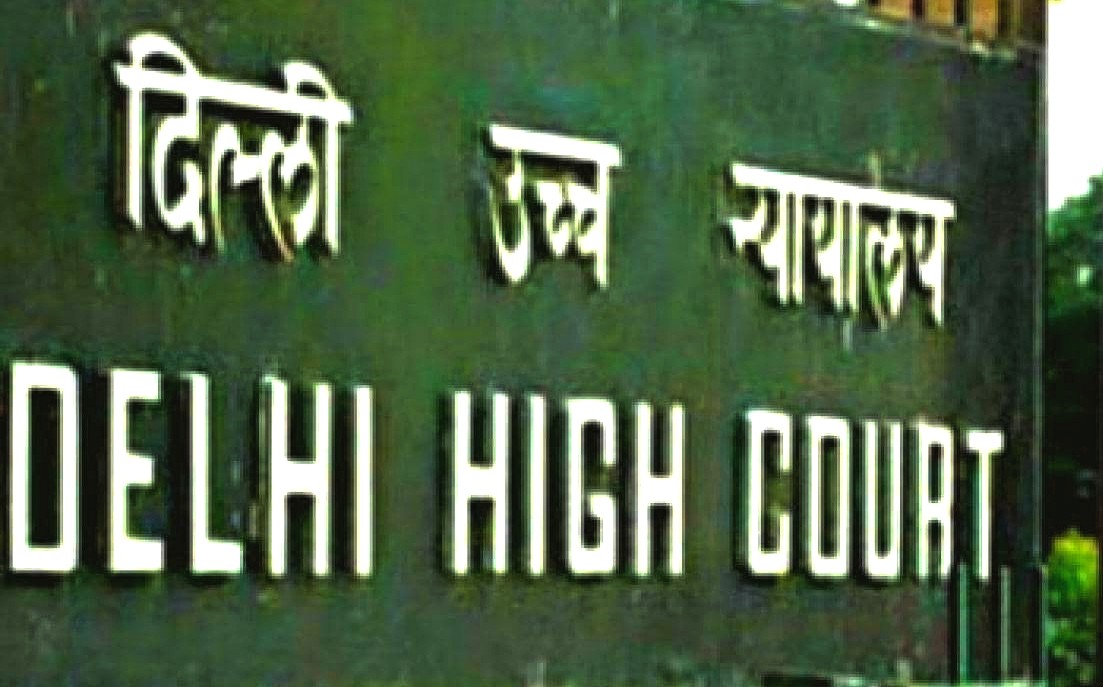Where foreign cheque has been deposited for encashment, Indian Courts shall have jurisdiction to adjudicate on complaint case u/s 138 of NI Act, clarifies Delhi High Court
Justice Navin Chawla [22-04-2024]

Read Order: RIGHT CHOICE MARKETING SOLUTIONS JLT & ORS v. STATE NCT OF DELHI & ANR [DEL HC- CRL.M.C. 6853/2022]
Tulip Kanth
New Delhi, April 24, 2024: The Delhi High Court has ruled that merely because the payee or holder in due course of a foreign cheque chooses to present the cheque in India out of malafide, the application of the provision of Section 138 of the Negotiable Instruments Act,1881 and the jurisdiction of the court where such cheque is deposited for payment, cannot be ousted.
The Single-Judge Bench of Justice Navin Chawla was considering a petition filed under Section 482 of the Code of Criminal Procedure, 1973 praying for quashing of the proceedings in the complaint under Section 138 of the Negotiable Instruments Act, 1881 filed by respondent no.2 herein.
The facts of the case were such that the petitioner no.1, an entity with its office in the United Arab Emirates (UAE) and the sales and marketing wing of Right Choice Builders Private Limited, was arrayed as accused no.6 in the complaint. It was stated that the accused no. 6 had established various branches and petitioner nos.2 and 3, along with others, who have been arrayed as accused nos. 4 and 5 in the complaint, are the common Directors of the Group.
It was alleged that in 2014, petitioner no.2 representing himself to be the Director of Right Choice Group of Companies, personally approached respondent no.2 for investment in the aforesaid entities, assuring him of high rates of return on investments. It was stated that respondent no.2 succumbed to the repeated follow-ups of the accused, and believing their representation of assured quarterly returns, invested an amount of Emirati Dirham (AED) 600,000 in favour of accused no.6 at its branch office in Dubai, by issuing multiple cheques. The said amount was invested on the assurance of return at the rate of 26.5% per annum.
It was asserted that in January 2016, when respondent no.2 called upon the accused at the head office at Pune, the petitioner nos.1 and 3, on express instructions from petitioner no.2, and accused nos.4 and 5, issued ten fresh post-dated cheques towards the repayment of interest to respondent no.2. However, when respondent no.2 presented the said cheques before the bankers, that is, National Bank of Abu Dhabi, and HSBC Bank, Middle East, those were returned dishonoured with the remarks "insufficient funds".
Respondent no.2 initiated criminal complaints against the accused with the Abu Dhabi Police for the dishonour of the ten cheques. The Abu Dhabi Courts of First Instance convicted petitioner no.3 and sentenced him with imprisonment. It was stated that the accused were not traveling to Dubai out of fear of being arrested.
Thereafter, respondent no.2 issued a legal notice through his counsel in Abu Dhabi. The said notice was addressed to the accused at its Dubai office as also the India office and was duly served on the India office. Terms of settlement were shared by the counsel for respondent no.2 however, the accused never responded to the same.
When respondent no.2 proceeded to present the cheque of the principal amount of AED 600,000 drawn on the bank, namely, Emirates NBD Bank Gold Branch, it was again dishonoured. Respondent no.2 thereafter issued Legal Demand Notice under Section 138 of the NI Act.
The Bench made it clear that the offence under Section 138 of the NI Act is deemed to have been committed at a place where a cheque is delivered for collection at the branch of the bank of the payee or holder in due course, and the offence shall be inquired into and tried only by a court within whose local jurisdiction, if the cheque is delivered for collection through an account, the branch of the bank where the payee or holder in due course, as the case may be, maintains the account, is situated.
In the present matter, the cheque was presented for payment by the respondent at Delhi. There was no prohibition of the cheque being deposited by the respondent no.2 for collection in Delhi. “Therefore, in terms of Section 142(2) of the NI Act, the Court at Delhi shall have jurisdiction to inquire into and try the offence under Section 138 of the NI Act”, the Bench said.
Moreover, due to the amendment in Section 142 of the NI Act, now the dishonour of the cheque, due to its presentation for payment at the bank of the respondent no.2 at Delhi, would be deemed to have taken place at Delhi. Though, Section 134 of the NI Act states that in absence of a contract to the contrary, the liability of the drawer of a foreign cheque is regulated in all essential matters by the law of the place where he made the cheque, the Bench opined that there is nothing in the said provision which would exclude the application of Section 138 of the NI Act read with Section 142 of the NI Act.
“Merely because the payee or holder in due course of a foreign cheque chooses to present the cheque in India out of malafide, the application of the provision of Section 138 of the NI Act and the jurisdiction of the court where such cheque is deposited for payment, cannot be ousted”, the Bench held.
It was the case of the Complainant/respondent no. 2 that the petitioner nos. 2 and 3 escaped from the jurisdiction of the Courts at Dubai and had come to India. It did not therefore, lie in the mouth of the petitioner nos. 2 and 3 to contend that the presentation of the cheque in India by the respondent no. 2 for encashment, was malafide. The petitioner nos.2 and 3 are also citizens of India, presently residing in India.
Referring to Section 4 of the CrPC, the Bench observed that offence under Section 138 of the NI Act is to be tried in accordance with the provisions of the Cr.P.C., subject to the provisions of the NI Act itself, including Section 142 of the NI Act.
“Therefore, reading Section 4 of the Cr.P.C. with Section 142 (2) of the NI Act, it must be held that the Courts in India (Delhi) where the cheque has been deposited for encashment, shall have the jurisdiction to adjudicate on the complaint for an offence under Section 138 of the NI Act, even though it is a foreign cheque”, the Bench Said.
Asserting that there was absolutely no reason supplied by the petitioners in the petition for the delay in approaching this Court, the Bench held that the unexplained delay itself is sufficient ground for this Court to refuse to exercise its inherent jurisdiction under Section 482 of the Cr.P.C. to quash the complaint at this belated stage.
Thus, finding no merit in the petition, the Bench dismissed the same.
Sign up for our weekly newsletter to stay up to date on our product, events featured blog, special offer and all of the exciting things that take place here at Legitquest.




Add a Comment